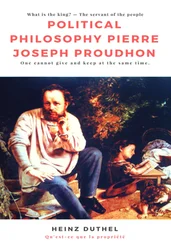While this was happening, most of the “Old Light” churches in the colonies went about their business, and often set themselves against what they took to be the unhinged emotionalism and questionable theology of the camp meeting revivals. There were schisms between Old Light and New Light versions of the Methodism of Whitefield and Wesley, the Dutch Reformism of T.J. Frelinghuysen, the Presbyterianism of Tennent, and the Congregationalism of Davenport and Edwards. The New Light evangelists met Old Light attacks with their own accusations that the stolid Old Lighters were more concerned with their respectability and worldly status than with the Gospel of Jesus Christ.
The New Light evangelicals also diverged from each other, both in their theology and in their temperaments. The more cerebral evangelicals like Jonathan Edwards, influenced by the Enlightenment, closely examined the natural world, and explained how it intricately demonstrated the Creator’s superintending plan and design. (This theological project would be taken up in the nineteenth century by academic natural philosophers like Williams College’s Mark Hopkins, who, prior to the rise of the secular German-style research university toward the end of that century, played a central role in higher education at the nation’s then mostly Christian colleges and universities.) 2On the other hand, evangelicals like the fanatical James Davenport – who denounced other clergy as heretics, bragged about assessing at a glance whether an individual was destined for heaven or hell, and burned worldly luxuries, books, and, in one case, his own pants (which, in a fit of righteousness, he stripped off before an appalled crowd) – made it hard to know where the godliness ended and prurience, exhibitionism, and mental disturbance began.
The effects of the First Great Awakening on the later life of the nation are hard to exaggerate. Besides transforming its theology, the revival significantly augmented and diversified American Christianity. (The ranks of the Methodists and Baptists in particular swelled.) The First Great Awakening inspired a transformative introspection amongst colonial women. It, moreover, played an important role in the adoption of the Christian faith by the country’s enslaved African peoples, fundamentally reshaping black American life and thought.
At the most general level, the understanding of many Americans of the world as superintended by God’s plan, of life as beset by sin, but with a promise of redemption and salvation, and of this condition as constituting not only a great truth but also an emotion-drenched drama of world-historical significance with everything at stake, has plainly been informed by the United States’ Protestant heritage. So, too, has one major strain of what has come to be called “American exceptionalism,” which understands the United States as “New Canaan,” or “New Israel”: a promised land and people, chosen by God, with His great plan in mind, serving as a beacon – and perhaps even savior – to the world.
Race and Indigeneity during the Settlement and the Road to Revolution
When Spanish, Dutch, French, and English explorers and settlers first arrived in North America, they encountered a land inhabited by millions of indigenous peoples who had been living there for over 10,000 years. As such, the political thought of and concerning America’s native peoples, like that involving its coercively imported Africans, has been a constant throughout US history. This indigenous political thought falls into two categories. First, there is the political thought of the native tribes themselves concerning their own collective lives, considered independently of their relationship to the European settler-colonizers. And, second, there is the political thought of the tribes (and, for that matter, of the Europeans and their American descendants) underwriting, informed, and generated by the European conquest, settlement, and rule. The former, given the structure of modern scholarly disciplines, has historically – and, some would say, problematically – been considered the proper subject less of political science than of anthropology. It involves deep considerations of native concepts, cosmologies, epistemologies, philosophies, religions, and cultural practices of a far-flung landscape of different indigenous tribes. This thought advanced diverse understandings concerning the origins and nature of the community, clan, and kin, the relation of native peoples to the land and other living beings, and the sources and locus of authority. The latter species of indigenous thought, developed of necessity, frequently sparked political debates and contention among natives and white settler-colonialists alike. This second type of thought formulated views concerning native sovereignty and the desirability and terms of acculturation, assimilation, conversion, or accommodation in the face of a relentless demographic onslaught. Tribal thinkers raised questions concerning the normative or strategic desirability of adopting the concepts and practices of European political thought, like sovereignty (with its assumptions concerning the fixed territoriality of states, petitions, treaties, and citizenship), property ownership, race, ethnicity, (minority and liberal individual) rights, and the Christian faith.
As might be expected, some of the most prominent voices of Native American political thought in British North America – and, in turn, the early republic and antebellum United States – were evangelical Christian ministermissionaries like Samson Occom and William Apess, fired, in some cases by the First Great Awakening, to bring the gospel to the land’s indigenous heathens, while simultaneously arguing for their just and humane treatment. Others, like the Seneca orator Red Jacket (Sagoyewatha) or the Sauk warrior Black Hawk, either advocated on behalf of their tribes’ traditional religions, or simply continued to practice their native cosmologies and faiths.
While Africans in America were relative newcomers when considered in relation to the continent’s indigenous peoples, they arrived on its shores at about the same time as North America’s white European explorers and settlers. Although there were sixteenth-century antecedents in short-lived Spanish settlements dotting the littoral southeast, the forced labor of Africans brought against their will to North America began in earnest in Virginia in 1619 – the year before the Puritan settlers landed at Plymouth. At the time, forced labor was not a unique burden of coercively imported Africans: indentured servitude of whites, to say nothing of women (who in many respects were conceived of as living in service to their husbands), was a pillar of the settler-colonial economic, social, and political order. In time, however, this form of servitude faded, and slavery in the Americas, in contradistinction to bondage in the ancient world, was racialized.
Opposition to the enslavement of human beings, albeit fledgling, traces back nearly as long. From as early as the 1680s, Quakers, concentrated in the Pennsylvania colony, distinguished themselves as outspoken opponents of slavery. As Enlightenment ideals of liberty, equality, democracy, and human progress began to take hold in the mid-eighteenth century, 3and then set the framework for the colonial grievances with the mother country (and, eventually, for the American Revolution), whites and free blacks alike noted the contradiction between the colonists’ ever more loudly professed moral and political ideas and both chattel slavery and racial inequality. In what has come to be called abolitionism’s “First Wave,” interracial coalitions sustained and inspired by Christian and secular humanitarian ideals alike began the process that resulted in gradual, state-by-state emancipation in the North. This ongoing process collided with the country’s founding, raising serious political problems that would bedevil the Constitutional Convention that framed the nation’s core political institutions.
Читать дальше












